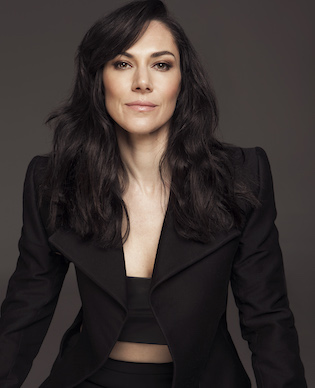The Prince
Synopsis: Based on true events, Olivia, a young tap dancer and her uncle Amir, an actor, struggle with what it means to be Middle-Eastern American and artists in today’s racially divided world.
The film bounces back and forth between an impassioned young girl performing a dramatic interpretive dance number on stage, and an actor struggling with a life-changing career decision.
Olivia has a big dance recital and she wants her uncle to be there, but Amir won’t be able to make it because he has booked a huge part on a major film – it could be a game changer. One morning, as Amir is getting his niece and nephew to school, a man verbally attacks them on public transit calling them terrorists. Olivia and her little brother, Jason, are shocked and confused because as Canadian-born citizens they never realized until this moment that they were seen as different. Amir discovers how deep Islamophobia runs in this city: no one on the bus is willing to help or stand up for them. Suppressing his own inner turmoil, Amir does his best to comfort the kids and let it go, but the incident stays with them: Who am I? Why do people see me differently? How do I want them to see us?
Excited for his first day on set, Amir sits in the make-up trailer trying to ignore the subtle racism surrounding him as they prepare him to play AL FAYED – the lead terrorist in the film. Meanwhile, Olivia uses the experience as inspiration to create a dance number dedicated to her uncle.
The day of her recital finally arrives and Amir is sorry he has to miss it for his gig. He is faced with a career changing decision: If he goes through with playing this role he is guilty of perpetuating the stereotype. In honor of her uncle, Olivia’s piece is titled “The Prince”, which translates to ‘Amir’ in Arabic.
Genre
Run Time
Directed by
Written by
Produced by
Danielle Stott-Roy
Director's Statement
With Islamophobia on the rise, I felt it was time to share it this story which is based on true events that occurred with my family.
I wrote a draft of this script before the 2016 election and it was relevant. Post election, it’s not only relevant, it’s necessary. The word “terrorist” is still typically used in reference to a specific group of people who fit a specific physical description. To some in the Western world, it doesn’t matter if a person is actually Muslim or not- born and raised in North America or not. If you look like “them”, the assumption is that you too, could be capable of “barbaric practices.”
As an American, 9/11 devastated and scared me. So did the killings at a church in Charleston, South Carolina committed by Dylann Roof. The school shooting at Sandy Hook was beyond tragic. Terrorizing. But we don’t call these incidents acts of terrorism, do we?
As artists we have a responsibility to do something with our creative voice. If we could truly acknowledge how influential the media is in educating people to believe in negative stereotypes, perhaps we could take steps to make a positive change on screen and off. If we want to change our damaged culture and make our society safe and inclusive for everyone, we need to be conscious of the stories we tell. I’m tired of seeing MENA characters depicted as either terrorists or victims in North American stories.
This film is meant to be an eye opener to the great responsibility we have, and I sincerely hope it inspires individuals to acknowledge their own prejudices, and to take the initiative to engage with communities that are unfamiliar to them with an open heart and mind.
Director's Bio

Kyra Zagorsky is an actor, writer and director. She is known for her work as the lead on Ron Moore’s “Helix”, and recent roles in “Continuum”, “The 100” and CW’s “Arrow”. On stage she’s known for the Canadian premiere of the Pulitzer Prize winning play “Disgraced”. She holds a BFA in theatre from Southern Oregon University and a Masters’ Degree in Acting from the University of California. Kyra wrote, produced and starred in the award-winning short film “Chained” and produced the award-winning short film “Shakey’s Coffee”.







